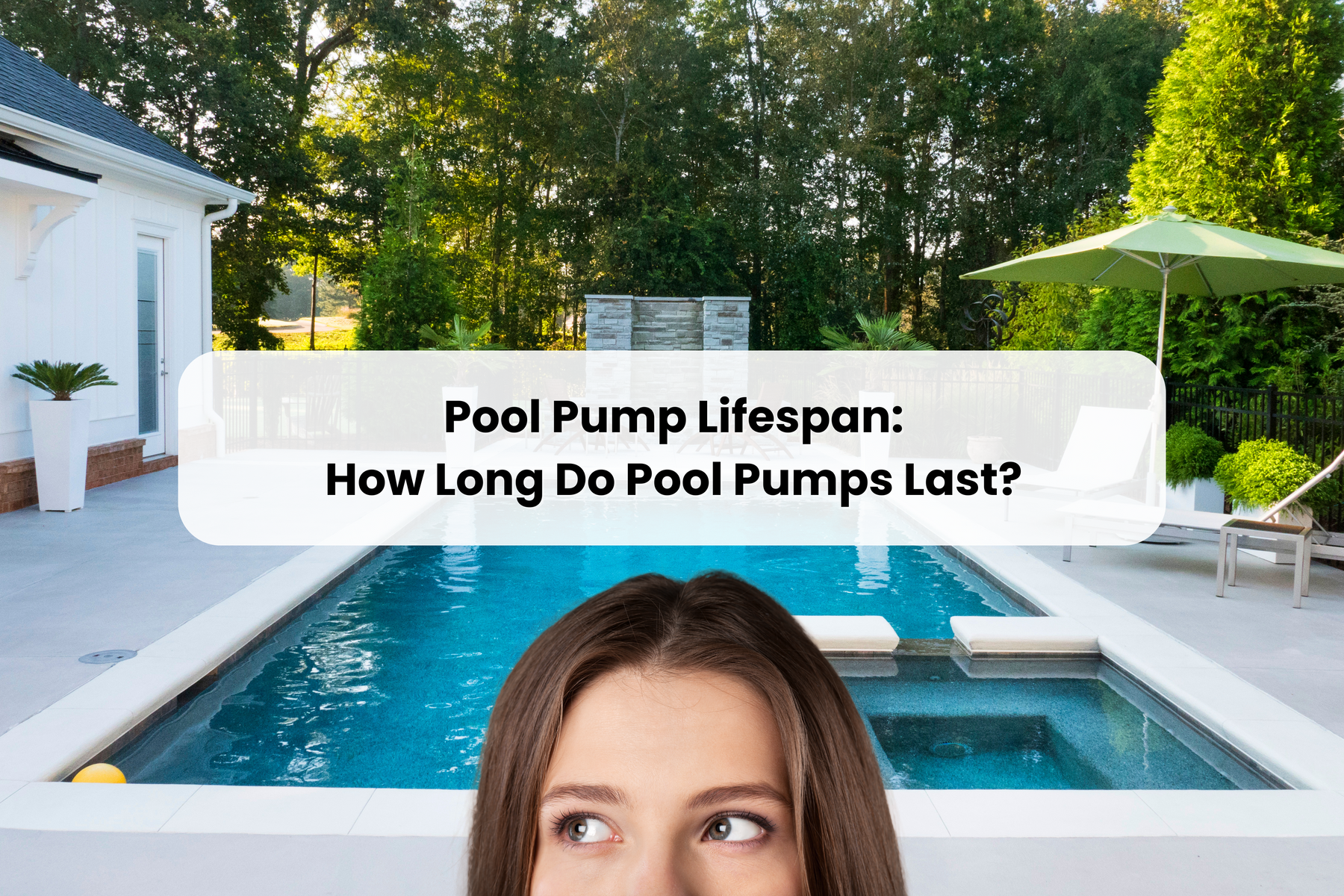
Pool Pump Lifespan: How Long Do Pool Pumps Last?
Average Lifespan and Factors Influencing Longevity
It all depends on maintenance and quality. Want to dodge breakdowns, save cash, and know when it's time to upgrade?
Understanding the Typical Lifespan of Pool Pumps
Most pool pumps last 8 to 15 years. That’s a pretty solid run, considering how often they work behind the scenes. Just like a car engine, the better care you give it, the longer it lasts.
Some pumps break down in just a few years. Others go the distance and keep running smoothly over a decade. It mostly comes down to usage, upkeep, and the environment around it.
Key Factors Affecting Your Pool Pump's Lifespan
Here’s what can make or break your pump’s longevity:
-
How often it runs: Running it nonstop without breaks wears it down faster.
-
Maintenance habits: Cleaning out debris, checking seals, and watching for early signs of trouble can extend its life.
-
Exposure to the elements: Pumps left baking in the sun or soaking in rain don’t last as long.
-
Pump type: Older single-speed models typically wear out quicker than modern variable-speed ones.
-
Build quality: Pumps from trusted brands with solid materials hold up better over time.
Lifespan of Specific Pool Pump Components
Even when the whole pump isn’t toast, smaller parts might be on their way out.
How Long Do Pool Pump Motors Last?
Motors are the heavy lifters of the whole system. Most last between 5 and 10 years, depending on how much strain they’re under.
Variable-speed motors often outlast single-speed ones. That’s because they don’t constantly run at full throttle. Think of it like driving in the city versus cruising on the highway - one wears your engine faster.
Lifespan of Other Vital Pool Pump Parts (Impeller, Seals, etc.)
-
Impeller: Usually lasts 5 to 10 years unless it's clogged often or damaged by debris.
-
Pump seals and gaskets: These have shorter lifespans - expect to replace them every 2 to 3 years.
-
Pump basket: This part may crack over time, especially with high heat or constant pressure. Luckily, it’s a cheap and easy fix.
Keeping these parts in check can keep your pump running longer without a full replacement.
Pool Pump Lifespan for Different Pool Types
Your pool type also affects how long your pump lasts. Not all pools are created equal - and neither are the demands they place on the equipment.
How Long Do Above Ground Pool Pumps Last?
Above ground pumps tend to have a shorter life. Expect about 5 to 8 years if you’re keeping it clean and protected.
They’re often smaller, more exposed to the weather, and not built for heavy-duty work. If they’re sitting in direct sunlight or getting flooded by rain, they’ll give out sooner.
Lifespan Considerations for Inground Pool Pumps
These pumps are designed to work harder and longer. Many last up to 15 years if maintained properly.
They’re also more likely to be from higher-end brands like FibroPool or Pentair. And when installed right with good airflow and protection from the elements, they stand a much better chance of hitting their full lifespan.
When to Replace Your Pool Pump
Knowing when your pump’s on its last leg can save you from a mid-summer crisis. Here’s how to tell when it’s time to stop repairing and start replacing.
How Often Do Pool Pumps Need to Be Replaced?
Most people replace their pump every 10 to 12 years. Sometimes sooner if it hasn’t been well maintained.
If you’ve kept up with cleaning and minor fixes, it could last longer. But once repairs start stacking up, it may be more cost-effective to get a new one.
Identifying Signs of a Failing Pool Pump
Your pump might be begging for help if you notice:
-
Weird grinding, buzzing, or screeching sounds
-
Poor water flow even though the system is on
-
Burnt smell or overheating
-
Constant tripping of your circuit breaker
-
Rising energy bills without a clear reason
If these sound familiar, don’t wait. Pumps rarely fix themselves, and delays often lead to bigger repairs.
Repair vs. Replacement: Making the Right Decision
Small issues like a leaky gasket or cracked basket? Easy fixes.
But if the motor dies or you’ve had to repair it more than once in a season, it’s likely time for an upgrade. Especially if your pump is older, noisy, and costing more to run.
Upgrading to an energy-efficient model can save money long-term. Plus, newer models tend to be quieter, more powerful, and better for your energy bill.
Final Splash
A pool pump doesn’t need to be a mystery. Take care of it, watch for early warning signs, and know when to hold on or let go.
Regular maintenance and smart decisions about repairs can stretch its lifespan and protect your pool from bigger problems. And when it's time for a new one, choose a pump that works as hard as you do to keep your pool crystal clear.
Need help choosing the right one? Get in touch!
Related reading:
- Do Variable Speed Pool Pumps Really Save Money?
-
How Much Do Pool Pumps Cost to Run: Your Complete Guide
-
Discover the Most Energy Efficient Pool Pumps: Save Energy Without Sacrificing Performance
-
Do Pool Pumps Need to Be GFCI Protected? Pool Pump GFCI Requirements Explained
-
Are Pool Pumps 110 or 220 V? What You Need to Know Before Plugging In





Leave a comment